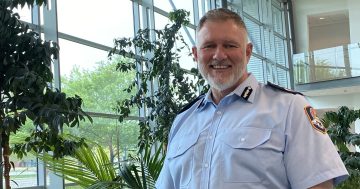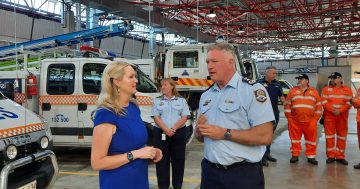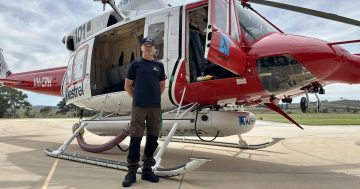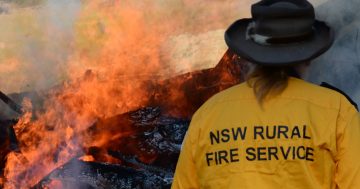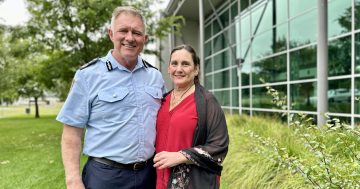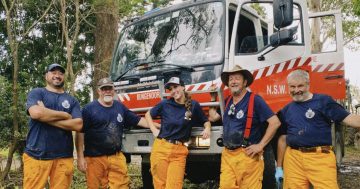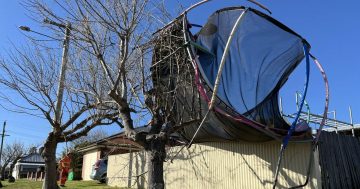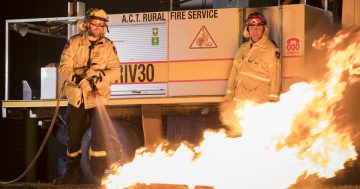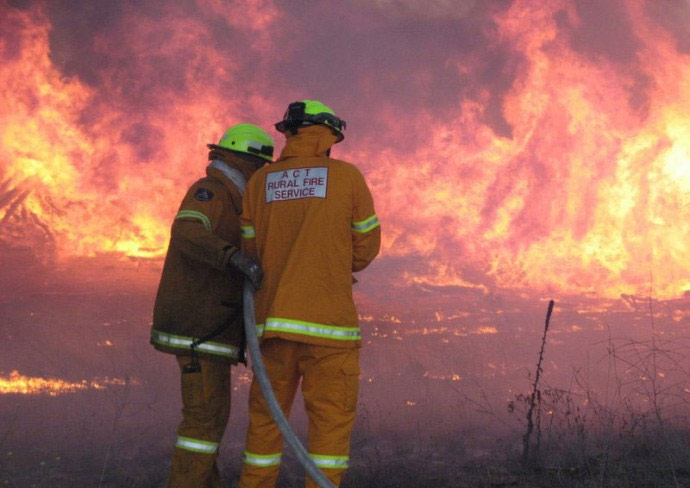
Mick Gentleman says the ACTRFS has around 10 per cent of its force currently deployed in NSW to help contain the raging bushfires with staff being rotated daily. Photo ACTRFS.
The ACT will ask the Federal Government for more funding to tackle the current bushfire season as resources are set to be tested while NSW burns and fires worsen.
The ACT has always relied on a reciprocal agreement with NSW where each jurisdiction sends firefighters across the border in an emergency, but as fire seasons become more intense, it is not clear if either has the resources to spare.
The ACT had 248 people deployed near Braidwood towards the end of November, an ESA spokesperson told Region Media, with around 200 of them being on-ground firefighters. Large and single-engine air tankers were also deployed to drop water, gel and retardant.
If an emergency scenario were to unfold in the Territory and these resources are pulled, it is unclear how a further-stretched NSW force would be able to deploy support across the border as fires continuing to burn across NSW.
The ACTRFS has around 10 per cent of its force currently deployed in NSW to help contain the raging bushfires, with staff being rotated daily to ensure they are not too exhausted should a fire break out in the ACT.
While Minister for Police and Emergency Services Mick Gentleman says the ACT currently has the capacity to combat fires that may emerge, he would expect NSW to send support and resources should the ACT become overwhelmed.
“[Emergency Services Agency] Commissioner Georgeina Whelan has done a great job ensuring we can support our neighbours in NSW, but we have limited that support so we have 90 per cent [of our force] on the ground in the ACT for any incident that could occur,” he said.
“We hope that it is reciprocal, so if something occurs within the ACT then we would expect NSW would come and help us as well.”
A professional RFS may be something the Territory would need to consider if bushfire seasons continue to get worse and resources are stretched thin, Mr Gentleman said.
“I think [a professionalised force] is something that we may need to look at in the future,” he said. “We have seen the effects of climate change, the lessening of rainfall, and the extremely dry conditions we have in the ACT.
“Our bushfire season is getting longer, it is taking much more organisation to ensure that we can do prescribed burns. We have to look at other innovative ways to address the fuel loads in our areas like strategic grazing and strategic slashing as well.”
There are currently 420 active members in the service with hundreds on a waiting list, according to ACT RFS Acting Chief Officer Rohan Scott; however, a recruitment drive to increase numbers will not be looked at until next year.
“We have a lot of inquiries to join the service and that is something we will look at after the season, to run a recruitment process in the new year and have them ready for the following season,” he said.
“I do not have an accurate number [of volunteers waiting to join] but it is definitely in the hundreds. We are getting phone calls regularly. It depends on how much fire activity is happening up north, or over to the east of us, it tends to generate a higher number of inquiries to join the service.”
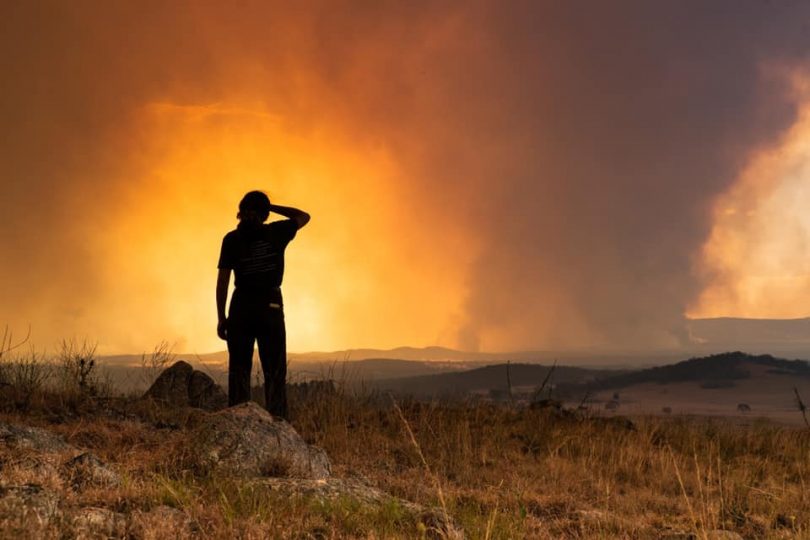
Braidwood resident Jarrah Knowles captured this image of the bushfires near Braidwood this week. Photo: Jarrah Knowles.
Mr Gentleman says calling in the Australian Defence Force (ADF) is not off the table should these resources wane, while extra funds from the Federal Government will also be needed to help ease pressures on the budget.
“We understand that there are some capabilities available through our Defence Force, so if necessary we will definitely be calling on them,” he said. “We have seen support from the Commonwealth, particularly through our aerial firefighting resources, and we are pleased to see that.
“It would draw on the budget of course, so at our next Ministerial Council for Police and Emergency Services I have no doubt that when we meet we will be asking for more resources from the Commonwealth.”
Meanwhile, Prime Minister Scott Morrison this week dismissed the idea of paying volunteer firefighters saying RFS volunteers want to be out in the field fighting fires and protecting their communities.
Former ESA Commissioner Peter Dunn agrees with this sentiment, saying that RFS members he spoke to would be insulted at the idea of being paid as it would go against the ethos of the volunteer-run brigade.
However, other strategies need to be put in place to help support the people who are leaving their businesses and communities for longer periods of time to fight these fires, he told Region Media.
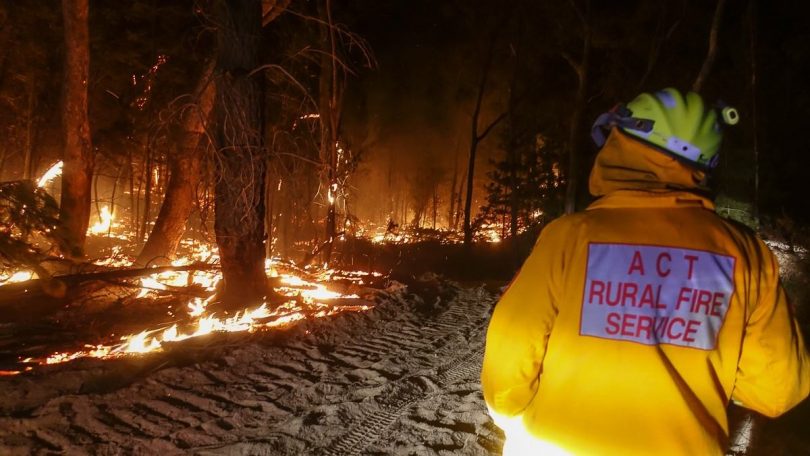
ACT RFS needs to be supported while they are volunteering away from home former ESA Commissioner Dunn says. Photo: ACT ESA
“These guys are the quintessential example of volunteering spirit. We need to ask what we can do to back them up,” he said.
“Something needs to be done about providing the opportunities and funds for people who leave farms and small businesses, perhaps a fund to employ casuals to come in behind them and keep their businesses running.
“People will have to stop volunteering soon because they have to go look after the cattle on their property – the fires will start to go for so long that they can directly impact the ability of people to survive financially.”
While former Commissioner Dunn says no position has been crystallised, a conversation needs to be had about resources and potentially setting up a national rapid strike force to compliment the state’s volunteer contingents.
“There needs to be a national discussion about whether we need something like a flying squad or strike force that is built up nationally so we can overkill a fire as soon as it starts – hit it so hard it does not have a chance to expand,” he said.












